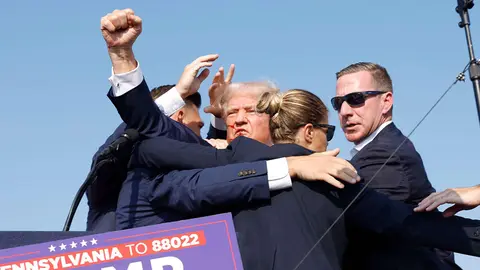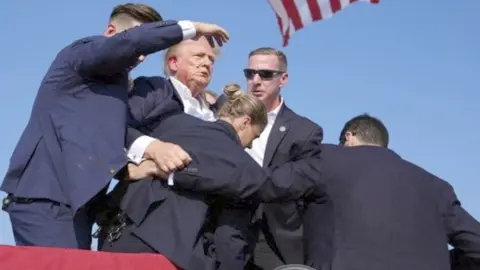Political violence, a real threat to the United States
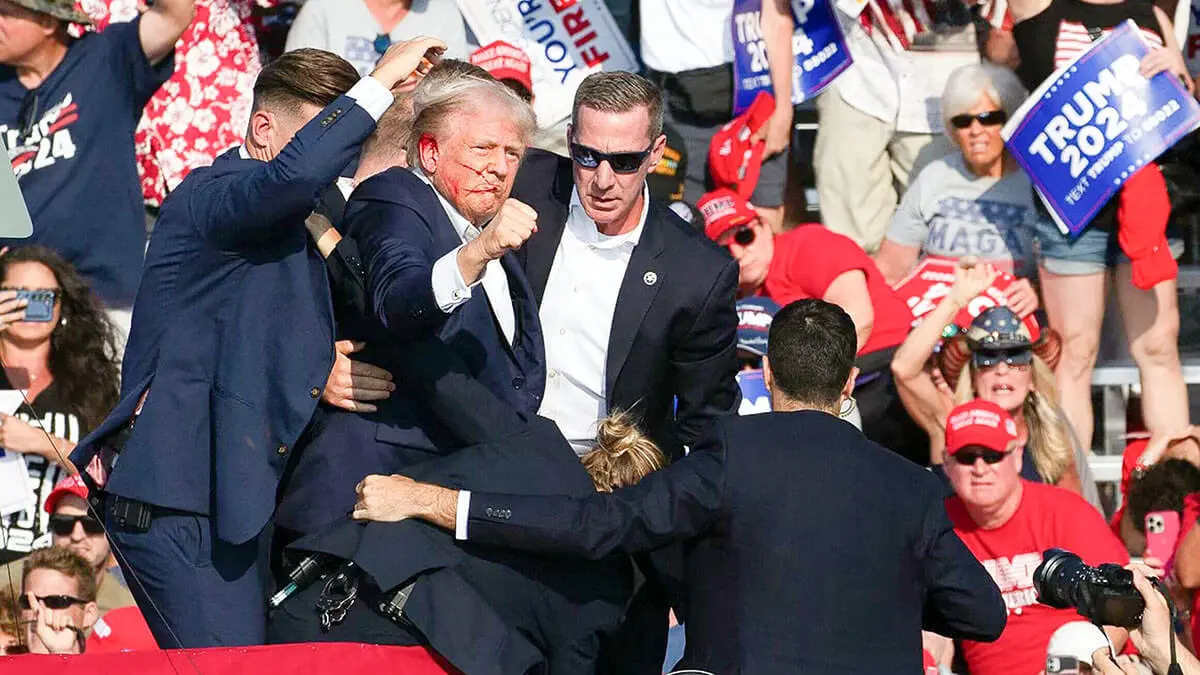
This weekend's attack on US presidential candidate Donald Trump has shocked international public opinion. However, this assassination attempt in the midst of a tense and hard-fought election campaign has come as no surprise to an increasingly polarised and radicalised society.
Trump, who despite all his legal scandals is desperately seeking a return to the White House, was shot and wounded in the ear during an election rally in Pennsylvania. This act of domestic terrorism - as described by the FBI - also killed one attendee and seriously wounded two others. The attacker, aged 20 and allegedly affiliated with the Republican Party, was shot and killed by secret service agents.
The assassination attempt against Trump has heightened concerns in Congress about the safety of its members, leading some politicians to cancel events or close their offices for fear of more similar attacks, something intelligence officials privately warn of, according to Axios.
Political violence is nothing new in the United States. The US power has a long history of attacks on presidents and politicians. In total, four US presidents were assassinated during their terms in office: Abraham Lincoln, James A. Garfield, McKinley and John F. Kennedy, although there have been many more attempts.
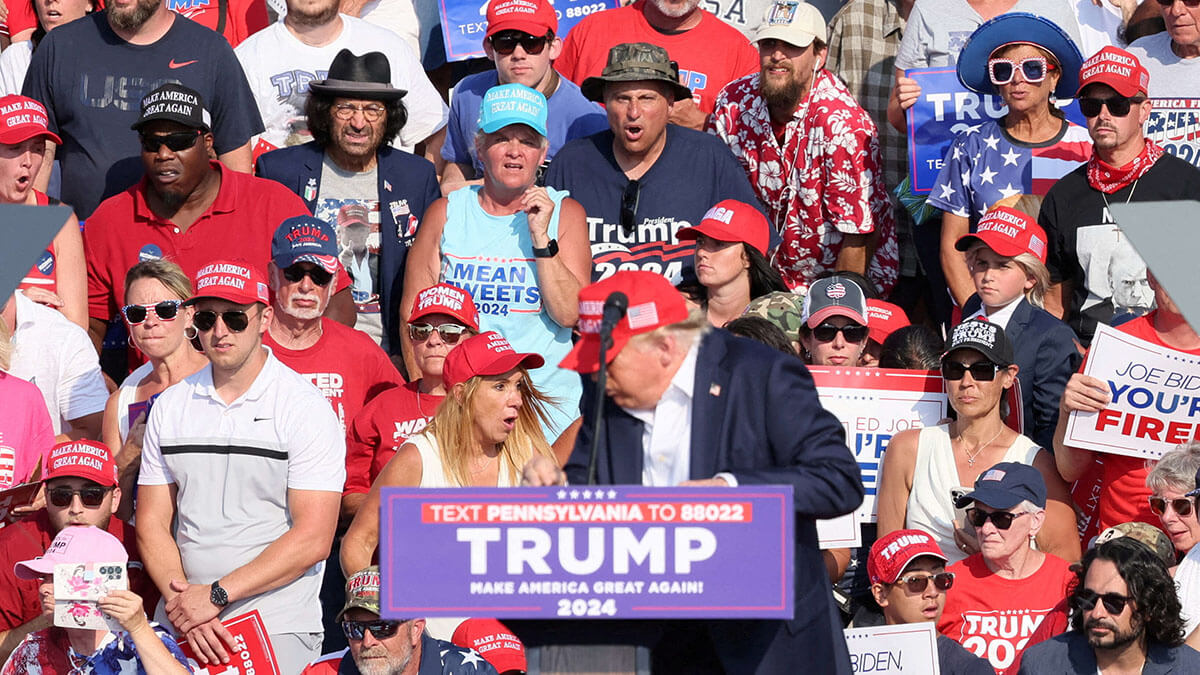
Of the last few years, the violence and brutality experienced during the assault on the Capitol on 6 January 2021 stands out, when a mob of Trump supporters stormed the heart of US politics, attacking security officers and occupying parts of the building for hours.
"In America, everything has become political. Everything political has become visceral. And everything visceral has become the possibility of unspeakable violence like this," write Jim Van de Hei and Mike Allen in Axios, where they warn of the dangers and threats of social media.
"The loudest, most provocative and most bellicose voices resonate loudest on most social media platforms. It is the fastest way to gain fans, followers and fame," they add.
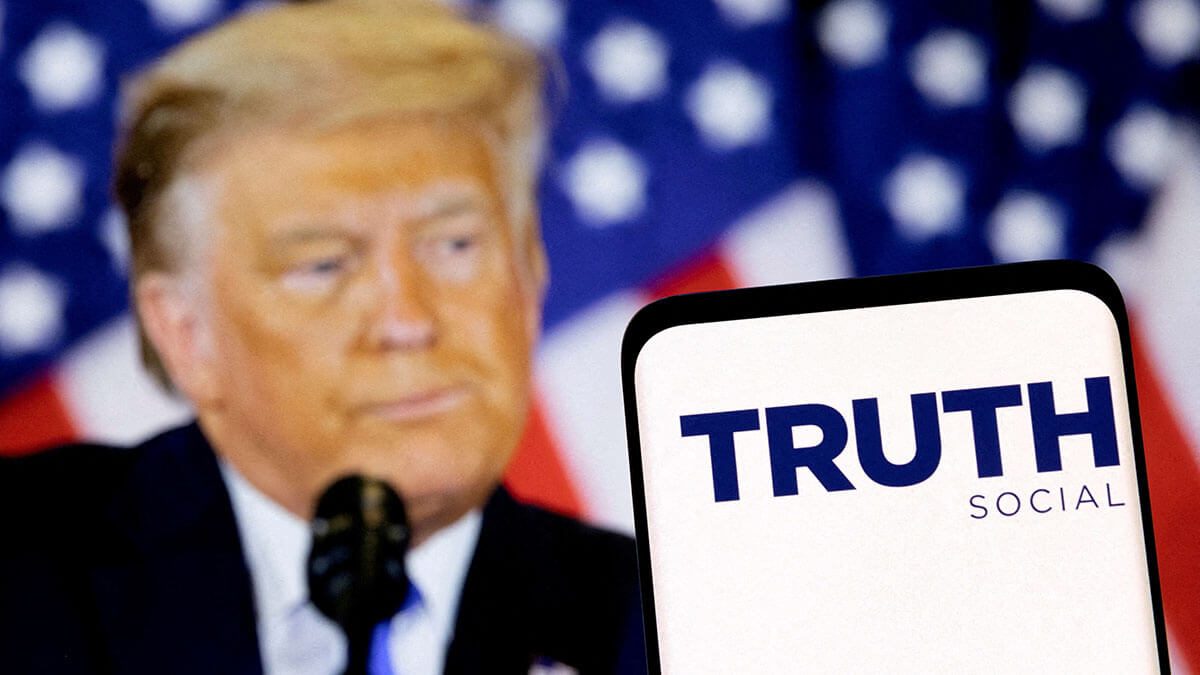
This assassination attempt further heightens tensions in an election campaign that has been framed by the candidates as a battle for the country, not a fight for a four-year term.
In particular, the current president and candidate, Joe Biden, will have to continue to warn that Trump is a threat to democracy, while at the same time acknowledging the recent threat on Trump's life. After the attack, the president has spoken to his opponent and condemned what happened, assuring that "there is no place in the United States for this kind of violence".
On the other hand, the image of a bloodied Trump with a defiant fist raised in the air is likely to be beneficial to his election campaign, as the Republicans hope.
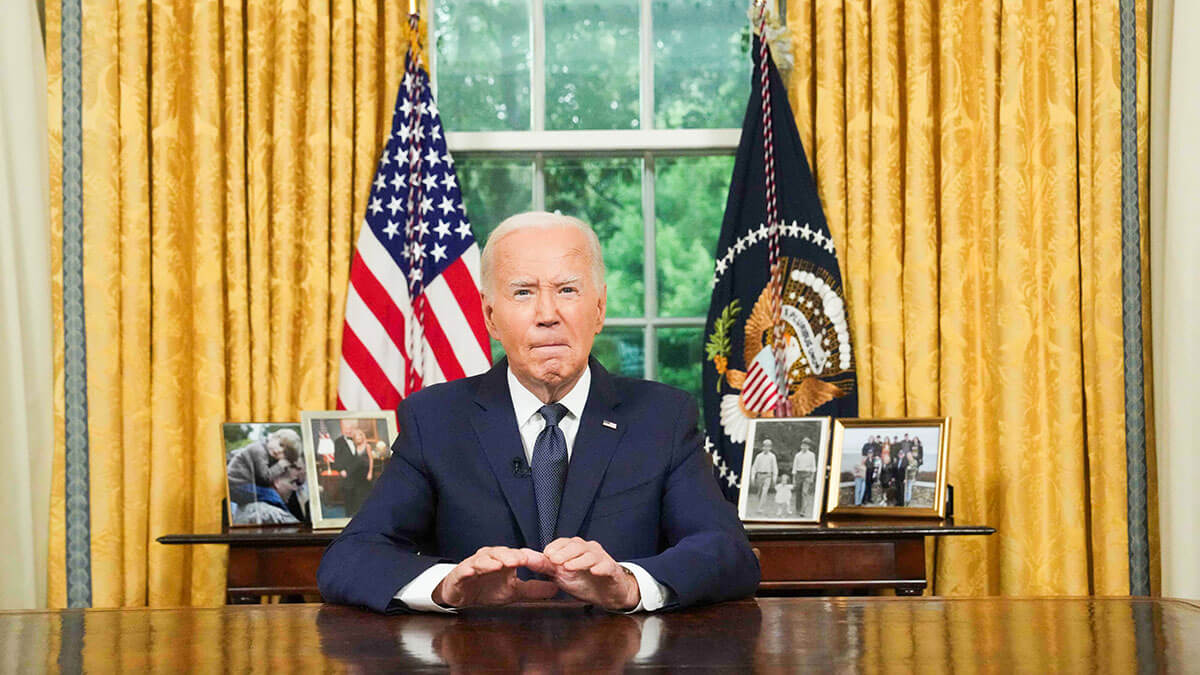
This attack sparked, as expected, numerous criticisms from both sides. On the one hand, Republicans blamed President Biden, the Secret Service and the media for the assassination attempt, while Democrats pointed to Trump's own violent rhetoric.
What is clear is the increasing rise of political violence in the United States. In recent years, senior government officials have warned of domestic violence, calling it a clear and present danger to the country. This violence is latent in social media comments, in telephone threats to members of Congress and candidates, as well as in Department of Homeland Security data.

